U.S. Supreme Court to hear case on strip searches performed on N.J. man accused of unpaid traffic fine
Published: Monday, April 04, 2011, 6:55 PM Updated: Tuesday, April 05, 2011, 5:37 AM
WASHINGTON — It was a seven-day ordeal that has lasted seven years.
In March 2004, Albert Florence of Bordentown was arrested on a warrant for an outstanding traffic fine he had already paid, and then strip-searched twice in two different jails over a seven-day period.
Eventually, a judge freed Florence and dismissed all charges. He promptly filed suit, claiming his treatment was unconstitutional.
Today, after a series of rulings and appeals, the U.S. Supreme Court agreed to hear the matter.
The case began seven years ago on Route 295 in Burlington County when a New Jersey State Trooper stopped a BMW sport utility vehicle being driven by Florence’s wife. According to court papers, the trooper checked the vehicle’s registration, which was in Florence’s name, and found he was wanted on an outstanding Essex County warrant. Florence, who works as a finance director, said he tried to show the trooper an official letter stating the warrant had been satisfied, but the trooper arrested him anyway.
Florence was taken to the Burlington County jail, where he was subjected to a strip- and cavity search. After six days, he was brought to the Essex County jail and again given a strip- and cavity search, fingerprinted, photographed and put in the general population.
A Superior Court judge ultimately dismissed all the charges and Florence filed a lawsuit in federal court, arguing that the jailhouse searches were unreasonable on the grounds that he was being held for failure to pay a fine — which is not a crime in New Jersey.
U.S. District Judge Joseph H. Rodriguez later ruled in his favor, finding it unconstitutional to strip search every defendant, regardless of their charge.
“A hypothetical priest or minister arrested for allegedly skimming the Sunday collection would be subjected to the same degrading procedure as a gang member arrested on an allegation of drug charges,” Rodriguez wrote, in a ruling supported by five former state attorneys general.
But Essex and Burlington officials appealed the decision, which they claimed would open the door for anyone arrested for petty crimes to claim damages for being unlawfully strip-searched.
In arguments before the 3rd U.S. Circuit Court of Appeals in Philadelphia last year, an attorney for Burlington County argued the searches were necessary to identify gang members through tattoos, prevent disease and impede drugs and weapons from fueling violence behind bars.
Susan Chana Lask of New York, Florence’s lawyer, told the court there was no justification for strip searching someone who violated something as minor as a dog-leash law, noting the Supreme Court in a 1979 ruling only gave authority to strip search inmates who failed to make bail — not to suspects picked up for minor offenses and had not yet seen a judge.
The arguments did not sway the panel. Last September, the appeals court overturned the lower court decision, granting county jails the authority to strip-search every inmate within their walls. They said it was crucial to search everyone to keep jails safe.
“It is self-evident that preventing the introduction of weapons and drugs into the prison environment is a legitimate interest of concern for prison administrators,” wrote Judge Thomas M. Hardiman.
Today, however, the Supreme Court agreed to hear the case, amid conflicting decisions in different circuits over the legality of strip searches.
Lask said she had vowed from day one that she would take it all the way to the top court.
“For 25 years across the nation, no court permitted these blanket strip searches,” she said.
But in recent years, appeals courts in Atlanta and San Francisco have decided that authorities’ need to maintain security justified a wide-ranging search policy, without regard to the reason for someone’s detention.
Those arguing for unlimited strip-searches have cited reasons ranging from the search for gang tattoos to illegal drugs.
“I don’t believe it has anything to do with it,” remarked Lask. “It’s just quick and easy for them to treat everyone the same.”

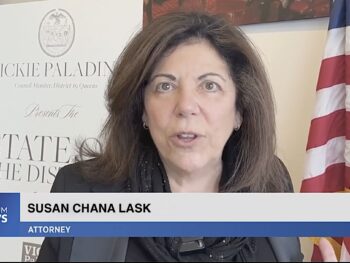
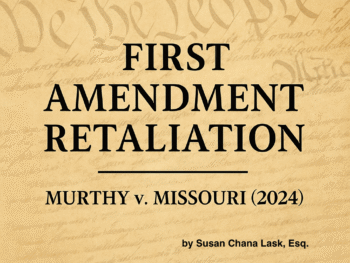
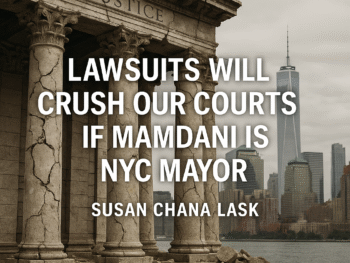
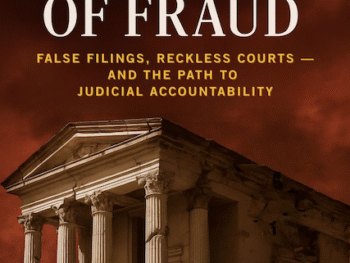
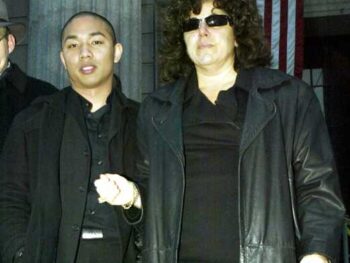




 Reuters : U.S. Supreme Court Grant’s Lask’s case
Reuters : U.S. Supreme Court Grant’s Lask’s case